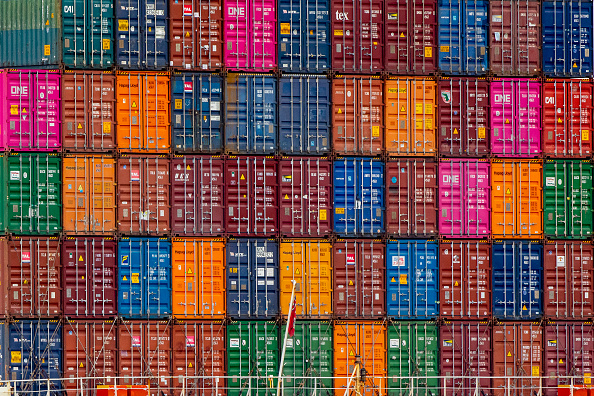
How to manage power dynamics in high-stakes negotiations
Former FBI agent Joe Navarro explains how to leverage non-verbal cues, manage power dynamics, and build trust to overcome deadlocks in negotiations....

by Steven A. Altman, Niccolò Pisani Published August 3, 2021 in Competitiveness • 4 min read
For years, concerns have been building about Europe’s shrinking share of the world economy and the sense it is falling behind as Asia continues to rise and the US dominates “big tech”. As Europe’s vaccine rollout advances, economic prospects have brightened, but the region still faces slower growth than the US and a mountain of new debt.
Europe’s globalization advantages are often underappreciated. In fact, the resilience of global flows and Europe’s unique position in them can help European firms get ahead. The DHL Global Connectedness Index 2020, which one of us co-authored, shows that trade in goods has already surpassed its pre-pandemic level, capital flows are recovering, and digital flows have spiked. Only people flows have collapsed.
The same index also ranks Europe as the world’s most globally connected region. Half of all countries around the world have larger trade, capital, information, and people flows with the European Union than with either the US or China.
The US economy is overwhelmingly domestic. Despite the political heat in the US about imports, no other advanced economy imports less than the US as a share of its GDP. China is still an export powerhouse, but exports as a share of China’s economy have dropped by half since 2006. China fell behind the EU on trade in goods and services as a percentage of GDP in 2015 (even after excluding trade between EU member countries).
European companies should look for growth opportunities where catering to differences creates more customer value
Geographically, on top of Europe’s excellent links to physical trade networks, the region’s time zone advantage is becoming even more important as more business happens online: on average, one can talk to people in countries accounting for 99% of the rest of the world’s economy without anyone having to be online before 8am or after 6pm. China and the US can only connect so conveniently to 68% and 64%, respectively, of the rest of the world.
Institutionally, European firms can benefit from years of intergovernmental effort at opening markets. The European Union has assembled the world’s largest network of preferential trade agreements, powerfully expanding the region’s business opportunities. And from a reputational standpoint, Europe benefits not only from global links but positive links. According to one study, 16 of the world’s 20 most reputable countries are in Europe, and a “good reputation means more exports, more investments, more people coming to visit”.
Many fear that Europe’s internal fragmentation dooms the region’s companies to fall behind in a winner-takes-all world where scale economies (allegedly) matter more than ever. But the winner-takes-all trend also has its limits because globalization is not leading to homogenization. Globalization is actually creating a more diverse business environment; a world tailor-made for connecting Europe’s internal diversity to its broad external linkages.
While Europe’s internal diversity makes it harder to achieve the fast scaling that American and Chinese companies can in their home markets, it forces European firms to develop capabilities for cross-country adaptation that rivals can find hard to master. Therefore, European companies should look for growth opportunities where catering to differences creates more customer value than a pure focus on driving costs down via global standardization.
The digital flows boom expands opportunities to apply this strategy online. Look, for example, at Spotify’s sensitivity to national and local cultures as it expanded from Europe to the world. Additionally, differentiating on privacy – given Europe’s regulatory lead in this area – can become an advantage for Europe’s digital sector.

First, ride the trade recovery toward greater supply chain resilience. The strong trade rebound should put to rest the idea of a big shift toward national self-sufficiency. But supply chain vulnerabilities revealed by the pandemic must be addressed. Europe’s size, diversity, and internal integration create opportunities to efficiently boost resilience via regional sourcing and production, on a standalone basis or within diversified global supply chains.
Second, take a balanced view on Brexit. While the UK’s exit from the EU is a step back from market integration in Europe, geography and a dense web of business and cultural linkages will continue to tie it very closely to Europe. So, while Brexit should prompt European companies to re-examine the activities they locate in the UK, they can still take advantage of its unique global connections. The UK tops the DHL Global Connectedness Index breadth ranking, meaning that no other country matches the geographic reach of its global flows.
Third, defend Europe’s internal and external integration. In early 2021, nearly half of Europeans were dissatisfied with the EU’s response to the pandemic, but they rated their national governments’ performance even lower and reported, overall, the most positive views about the EU in more than a decade. In this context, European multinationals can powerfully demonstrate the tangible benefits of international cooperation.
In conclusion, as Europe confronts its shrinking share of the world economy and growing debt, the best path forward is to double down on the region’s international business connections. European companies should leverage the region’s formidable strengths to compete in an increasingly diverse but still intensively connected business environment.

Steven A. Altman is a Senior Research Scholar at the New York University Stern School of Business, an Adjunct Assistant Professor in NYU Stern’s Department of Management and Organizations, and Director of the DHL Initiative on Globalization at the NYU Stern Center for the Future of Management.

IMD Professor of Strategy and International Business
Niccolò Pisani is Professor of Strategy and International Business at IMD. His areas of expertise include strategy design and execution as well as international business, with an emphasis on globalization and sustainability. His award-winning research has appeared in the world’s leading academic journals and extensively covered in the media. His work has been featured in both Harvard Business Review and MIT Sloan Management Review. He has also written several popular case studies that are distributed on a global scale.

May 6, 2025 • by Anna Cajot in Competitiveness
Former FBI agent Joe Navarro explains how to leverage non-verbal cues, manage power dynamics, and build trust to overcome deadlocks in negotiations....

April 24, 2025 • by Jerry Davis in Competitiveness
Many regional developers have tried and failed to emulate Silicon Valley’s VC-driven model for innovation. Detroit, the birthplace of Ford, is following an alternative route – with promising results....
 Audio available
Audio available
April 16, 2025 • by Benoit F. Leleux in Competitiveness
How a private equity-backed corporate carve-out created a successful, sustainable consulting powerhouse...

April 11, 2025 • by Jim Pulcrano, Jung Eung Park, Christian Rangen in Competitiveness
Founders searching for funding must be targeted in their approach to securing a lead investor. A global survey of VCs offers valuable insights into what makes them tick....
Explore first person business intelligence from top minds curated for a global executive audience